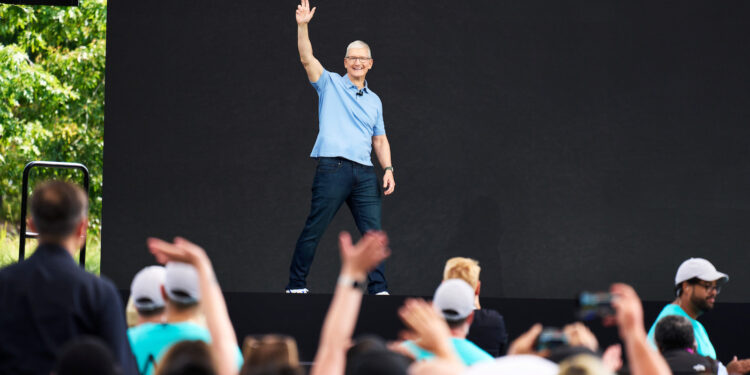Apple is staying true to its line and continues to focus on diversity, equity and inclusion (DEI). At the company's recent shareholder meeting, a motion calling for the end of the DEI program was rejected. CEO Tim Cook emphasized that Apple wants to continue to cultivate a "culture of belonging." While other major tech companies are scaling back their DEI initiatives, Apple is taking a different path.
In recent years, many companies in the US have reconsidered or stopped their diversity and equal opportunity programs. Meta, Google, Amazon, Walmart and Ford have already scaled back their DEI strategies. The National Center for Public Policy Research, a conservative think tank, called on Apple to follow these companies and end its own DEI program. The reasoning: Such programs would pose legal, financial and reputational risks for companies and their shareholders. But Apple clearly opposed this proposal. The company recommended that its shareholders vote against the motion, arguing that corporate culture is just as important as developing innovative products.
Apple continues to focus on diversity and inclusion
The think tank's application was based on the assumption that Apple's DEI initiatives could interfere too much with company processes and potentially pose legal risks. Apple's "Inclusion & Diversity“Program was considered to be particularly far-reaching. Despite this criticism, Apple stuck to its stance and emphasized that the company strives to create a work environment in which all employees can reach their full potential. In its proxy report, Apple had already stated in advance that calledto vote against the motion. It said that ethical and honest behavior was essential for long-term success. At the shareholders' meeting, Tim Cook confirmed this position and emphasized that Apple would continue to cultivate a "culture of belonging." At the same time, he admitted that there could be adjustments in the future if the legal framework changes.
Shareholders follow Apple's recommendation
The majority of Apple shareholders followed the company's recommendation and rejected the proposal. This means that Apple remains one of the few major tech companies that is sticking to its DEI initiatives. In addition to Apple, Costco is also continuing to focus on diversity, while other companies are rethinking or reducing their strategies. In addition to the vote on the DEI program, three other external proposals were rejected:
- A report on ethical AI data use
- An investigation into child sexual abuse material detection software and user privacy protection
- A report on Apple's charitable donations
It is extremely rare for Apple shareholders to vote against the company's recommendations. The last time this happened was in 2022, when they called for an audit of Apple's impact on civil liberties and use of confidentiality clauses in employee contracts.
Tim Cook announces further dividend increases
In addition to the votes, Tim Cook announced at the shareholders' meeting that Apple plans to continue increasing its dividends annually. This should be of particular interest to investors who are betting on Apple for the long term.
DEI program: Apple remains a pioneer in diversity and inclusion
Apple remains one of the few companies that continues to actively support DEI programs. The clear rejection of the proposal shows that both the company's management and the majority of shareholders support this strategy. Although Tim Cook has suggested possible adjustments, Apple is sticking to its basic stance: diversity and inclusion are part of the company's self-image. While other tech companies are distancing themselves from these programs, Apple is deliberately setting a sign in the other direction. The decisions of the shareholders' meeting underline that Apple is not only going its own way in terms of technology, but also in its corporate culture. How this strategy will impact in the future remains to be seen. (Image: Apple)
- Apple Intelligence: Why the Supercycle is Still Waiting
- Apple and DEI: How Diversity Drives Innovation and Profit
- Apple in court: The dispute over App Store fees





